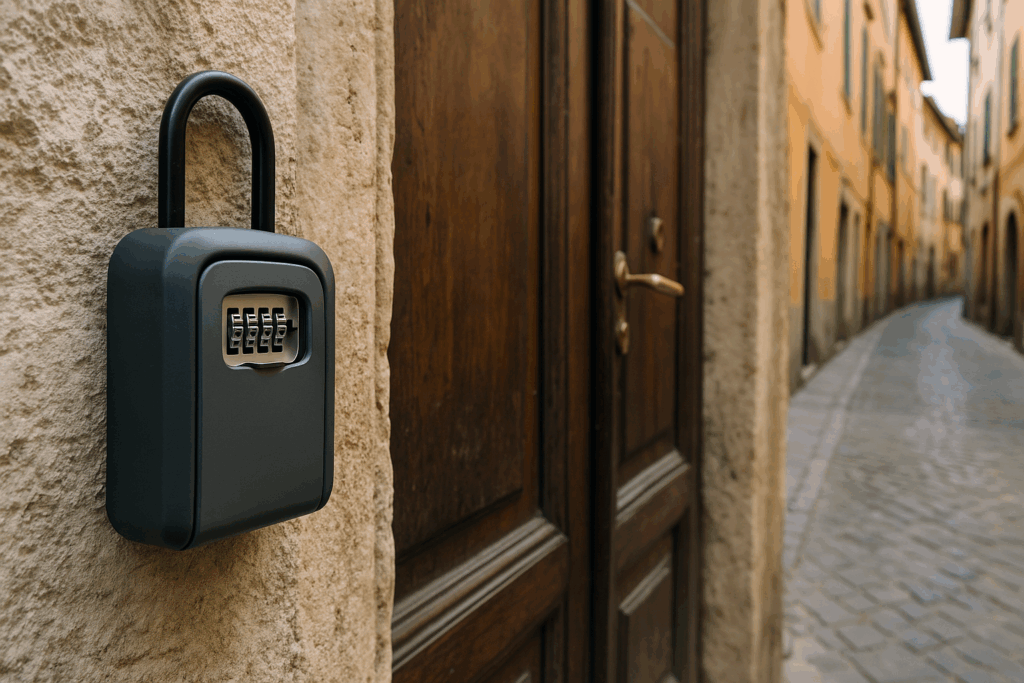Self Check-In Approved in Lazio: What Hosts Need to Know
The topic of self check-in in Italy has been the center of legal and operational debates. On May 27, 2025, a landmark decision from the TAR del Lazio changed the legal landscape for short-term rental operators. The court officially annulled the Ministry of the Interior’s circular that had required physical identification (“de visu”) of guests, siding with the FARE federation.
In this article, we explain what the decision means, how it affects your business, and how to remain compliant using tools like Chekin.
What Was the Problem with Self Check-in in Lazio?
Before the ruling, Italian hosts were facing legal uncertainty due to a circular issued by the Ministry of the Interior. The document reinforced the idea that hosts must verify guests’ identities in person, even when digital or automated check-in processes were in place.
This interpretation clashed with the industry’s move toward automation, particularly the use of smart locks, keyboxes, and apps like Chekin.
FARE’s Legal Challenge
FARE (Federazione Affitti Brevi) filed a formal appeal, arguing that:
- The requirement for in-person identification had no legal basis in the existing law.
- The 2011 reform already simplified guest registration processes.
- Technology offers secure and effective alternatives for guest verification.
On May 27, 2025, the TAR del Lazio agreed, annulling the circular and affirming that such a restriction was illegitimate.
Self Check-in FARE: What This Means for Hosts
1. Legal Clarification
The ruling removes the obligation of physical guest identification (“de visu”) imposed by the Ministry. This means:
- Hosts can adopt self check-in processes using digital identity verification.
- Tools like Chekin can now be used without legal ambiguity in Lazio.
2. What Does the Law Still Require?
Despite the ruling, some obligations remain under Article 109 of the TULPS (Italian Public Security Law):
- Guest data must be collected (name, address, ID/passport).
- Data must be submitted to Alloggiati Web within 24 hours of check-in.
- The host remains responsible for ensuring the identity is verified, even if digitally.
3. What About Keyboxes and Smart Locks?
These technologies are allowed, but they must be used within a system that ensures proper identity verification. For example:
- A guest uploads their ID in advance.
- The host confirms the match via video or biometric tool.
- The smart lock access is granted only after verification.
How Chekin Helps You Stay Compliant
Chekin’s platform is designed to ensure self check-in is both smooth for guests and fully compliant with Italian law.
Identity Verification Tools
- ID upload and OCR data extraction
- Facial recognition and biometric match
- Timestamped digital consent forms
Automated Reporting
- Instant submission to Alloggiati Web and ISTAT (ROSS1000)
- Compliant record-keeping
- Secure data storage for audit readiness
Seamless Guest Experience
- Fully remote check-in and smart lock integrations
- Guest messaging and upselling automation
- Digital Guidebooks
- Customizable branding and guest communication
If you are a tourist accommodation or hotel owner and you don’t use Chekin yet. Here is the solution to save 87% of your time and earn more with every booking
Free trial for 14 days. No credit card required!
Conclusion
The self check-in FARE victory in Lazio represents a crucial step forward for the hospitality sector. While legal obligations still require proper identity verification and data submission, the outdated requirement of in-person check-in has been lifted.
This creates space for modern, efficient, and contactless solutions like Chekin. For hosts in Lazio, and potentially across Italy, this ruling sets a precedent that empowers innovation while upholding guest safety and legal compliance.
Download our free guide
Discover how we can help automate your check-in process, ensure legal compliance, increase revenue, and protect your property or hotel.






